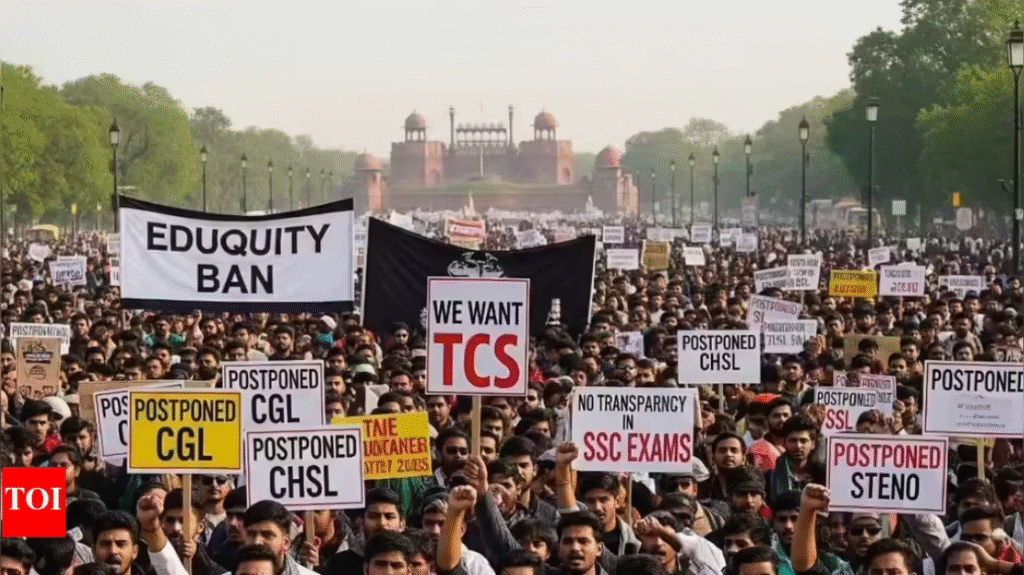The Delhi High Court has once again rejected the bail plea of Umar Khalid, former JNU student leader, in connection with the Delhi riots conspiracy case under UAPA. Umar Khalid has been in jail since September 2020 and has repeatedly sought bail on grounds of prolonged incarceration and lack of direct evidence. With the High Court dismissing his latest plea, senior advocate Kapil Sibal has confirmed that the legal team will now move the Supreme Court.
The Case Against Umar Khalid
Umar Khalid was arrested by the Delhi Police Special Cell in September 2020, accused of being a “key conspirator” in the Northeast Delhi riots that took place in February 2020. He has been charged under several provisions of the Indian Penal Code (IPC) and the Unlawful Activities (Prevention) Act (UAPA), a stringent anti-terror law.
The prosecution alleges that Khalid, along with other activists, was part of a larger conspiracy to instigate violence during protests against the Citizenship (Amendment) Act (CAA). The charges include criminal conspiracy, unlawful assembly, promoting enmity, and terrorism-related activities under UAPA.
High Court’s Reasoning for Rejecting Bail
The Delhi High Court bench observed that there was prima facie evidence indicating Umar Khalid’s involvement in the conspiracy. The court noted that statements of protected witnesses and electronic evidence submitted by the police could not be ignored at the bail stage.
The court emphasized that under Section 43D(5) of UAPA, bail cannot be granted if there are reasonable grounds to believe the accusations are prima facie true. This strict provision has been a major barrier for Khalid and others accused in similar cases.
Defense Arguments by Kapil Sibal
Senior advocate Kapil Sibal, appearing for Khalid, argued that:
- Umar Khalid’s speeches were critical of government policies but did not incite violence.
- There is no direct evidence linking him to the riots.
- He has been in custody for nearly four years without trial.
- The right to speedy trial, a fundamental right, is being violated.
Despite these arguments, the court maintained that the seriousness of allegations under UAPA warranted continued detention.
Political and Legal Reactions
The rejection of Khalid’s bail plea has sparked strong reactions. Civil rights activists and opposition leaders have termed the continued incarceration as a case of “justice denied”, while others argue that the law must take its course.
Sibal said, “We will approach the Supreme Court against this injustice.” The upcoming appeal will test whether the apex court takes a more liberal view of bail under UAPA.
The Larger Debate: UAPA and Bail Jurisprudence
The case once again highlights the debate over UAPA bail provisions. Critics argue that the Section 43D(5) clause, which heavily restricts bail, leads to prolonged imprisonment without trial. In many cases, trials have not commenced even years after arrest, raising questions of personal liberty and constitutional rights.
On the other hand, the government maintains that such stringent provisions are necessary to deal with terrorism and national security threats.
What Lies Ahead
With the High Court shutting the door, Umar Khalid’s legal team is preparing to move the Supreme Court of India. The apex court will examine whether continued detention without trial is justified, especially when evidence is largely circumstantial.
The outcome of this case will not only decide Khalid’s fate but may also set a precedent for future bail applications under UAPA.
Conclusion
The rejection of Umar Khalid’s bail plea by the Delhi High Court has reignited the legal and political debate on the balance between national security and individual liberty. As the case heads to the Supreme Court, it will be closely watched by legal experts, human rights activists, and political observers across India.
To read more Indian Laws and news, visit Legal Guide India



